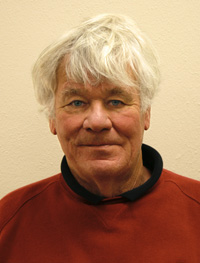News Archives
Dr. Jackson's Research Receives Wide Acclaim
HHP emeritus faculty Dr. Andrew Jackson's study on the role of Lifestyle and Aging on Cardiorespiratory Fitness was published in the October 2009 issue of The Archives of Internal Medicine. The study validates long held beliefs about fitness and provides proof that:
-
Fitness fades fast after 45
-
People can slow the inevitable by staying lean, exercising and refraining from smoking.
-
Maintaining an active, healthy lifestyle delays the start of fitness problems - You can literally stay younger longer, but you have to work for it.

Dr. Andrew Jackson
This study group included 3,429 women and 16,889 men aged 20 to 96 who had undergone two to 33 health exams with lifestyle counseling between 1974 and 2006.
Speaking to HealthDay Dr. Jackson said:
|
"We've known that, as you age, your aerobic capacity goes down, and the exercise physiology literature indicates it's a linear relationship. We found that this is not the case," said Jackson, who is professor emeritus of health and human performance at the University of Houston. "It makes sense to me. When things aren't working right, we tend to go down at faster rates. This was true for both men and women [although the rate of decline was faster for men than for women]." Taking care of yourself could make you, in a sense, younger than your years. "If you were overweight, inactive and smoked, your aerobic capacity would be lower at a given age as compared to other people who were healthy weight, active and nonsmokers," Jackson said. "The data showed that if people had that advantage when they were in their 30s and 40s and maintained that lifestyle, their aerobic capacity as they aged was, in fact, higher." "It could delay the age when these health problems start to spring up," he continued. "If people are very overweight, inactive and smoke, they might see these health problems in their 50s and 60s, whereas people who maintain a healthy lifestyle, it's going to be more like their 70s, 80s and possibly even their 90s." |
The results of the study are being widely featured in the media, some recent media mentions are listed below:
Healthday - Fitness Fades Fast After 45
National Institutes of Health (NIH) - Medline Plus
WebMD - Decline in Fitness Accelerates After Age 45
Metro Canada - Aging population will be increasingly ‘disabled’